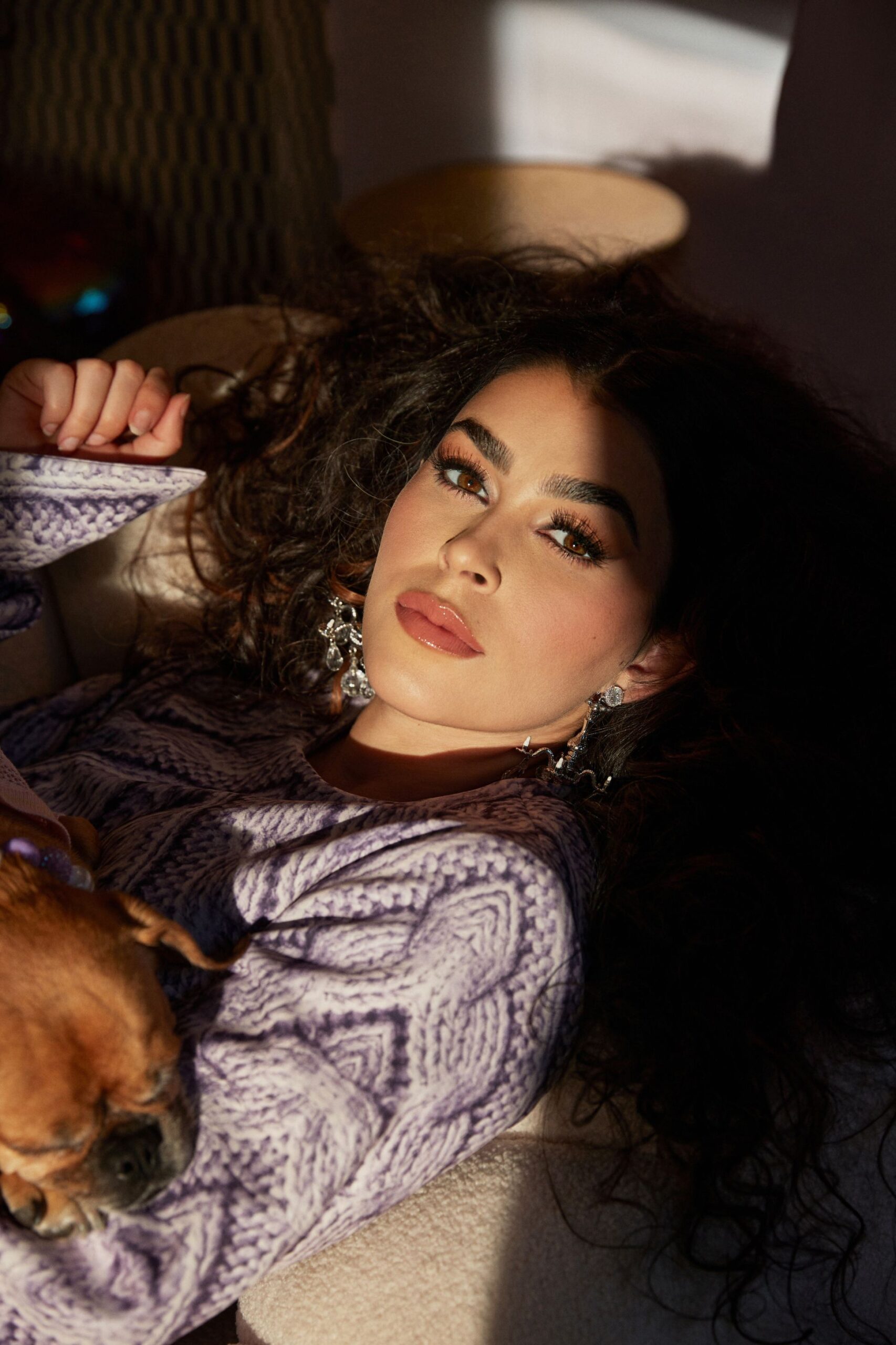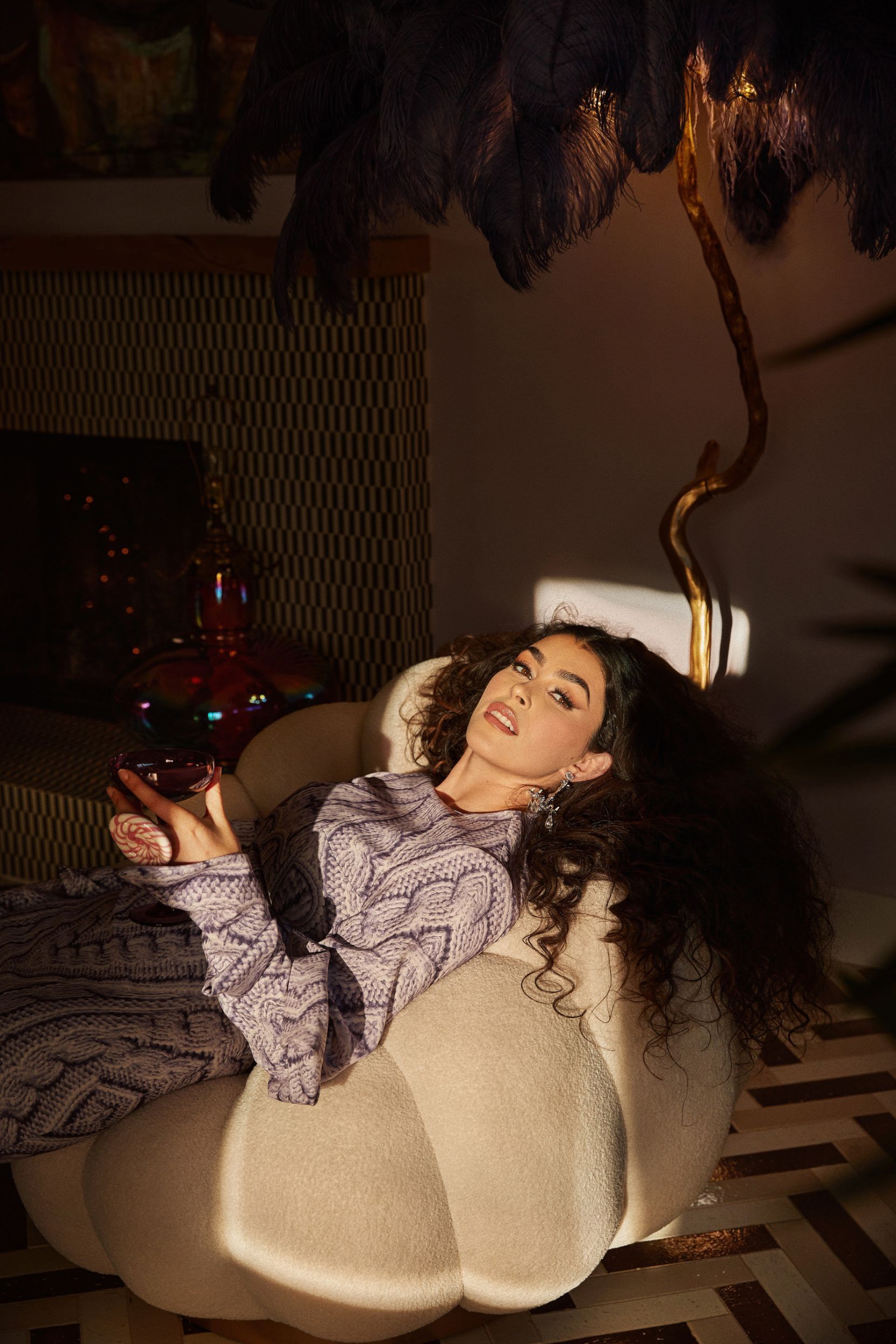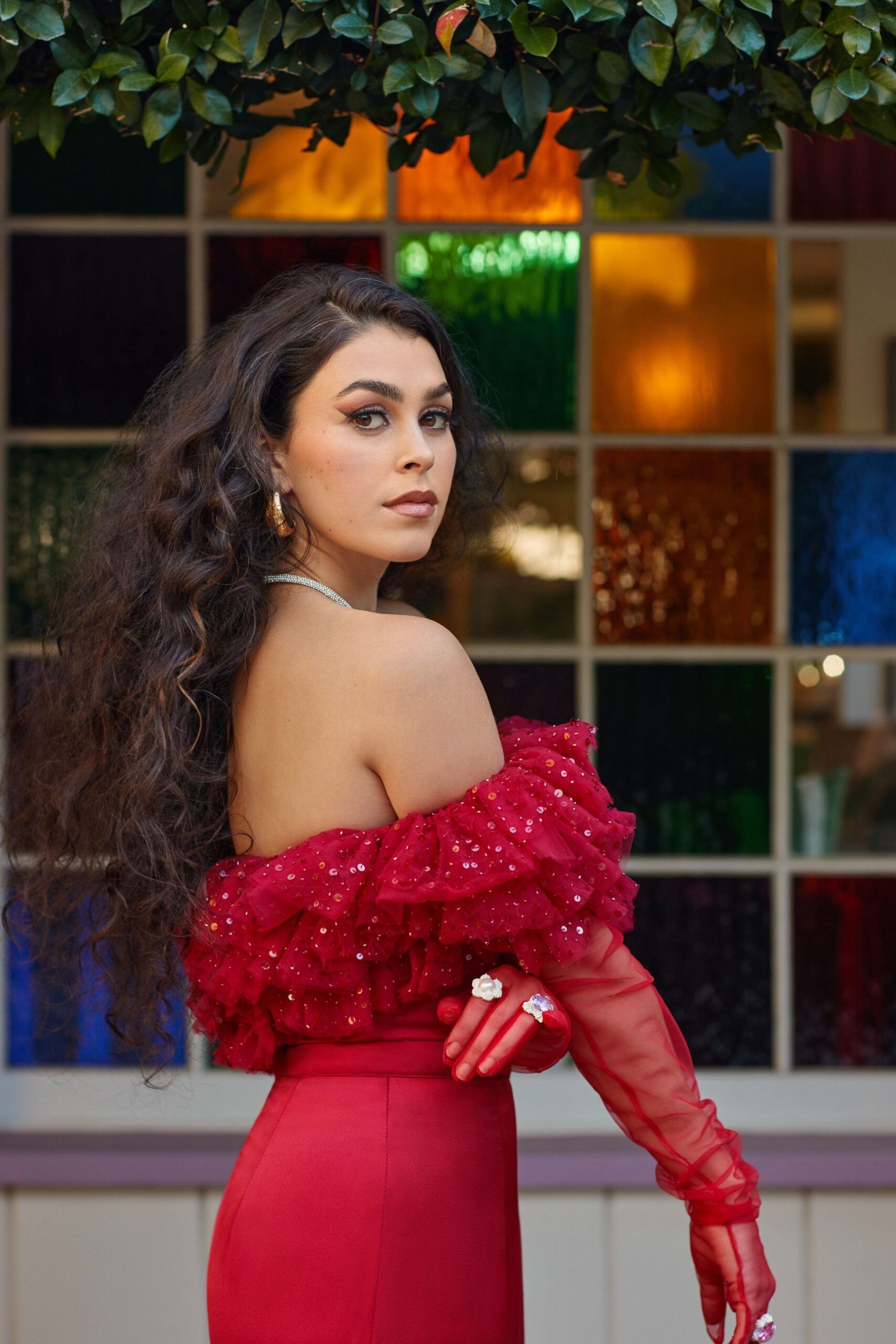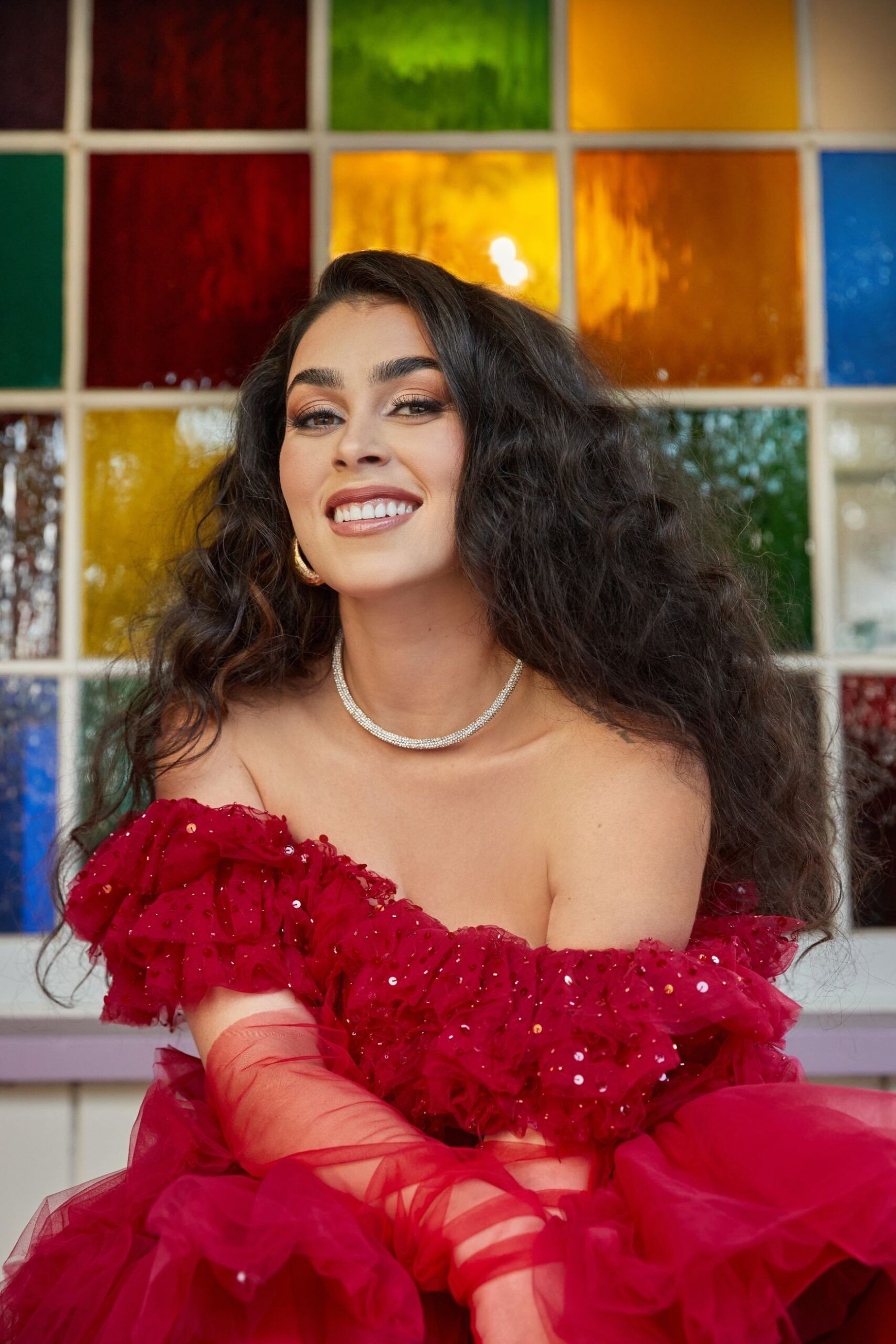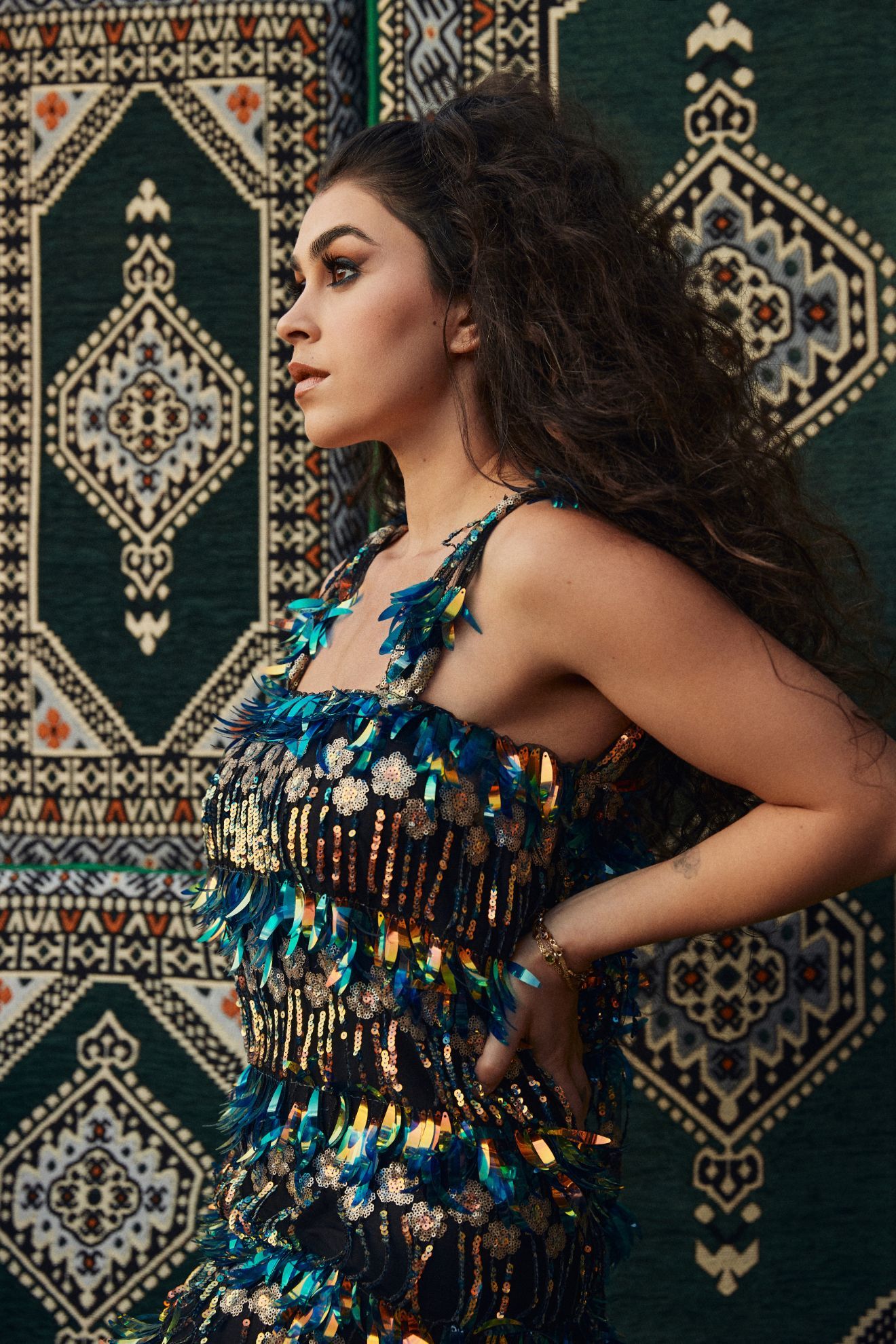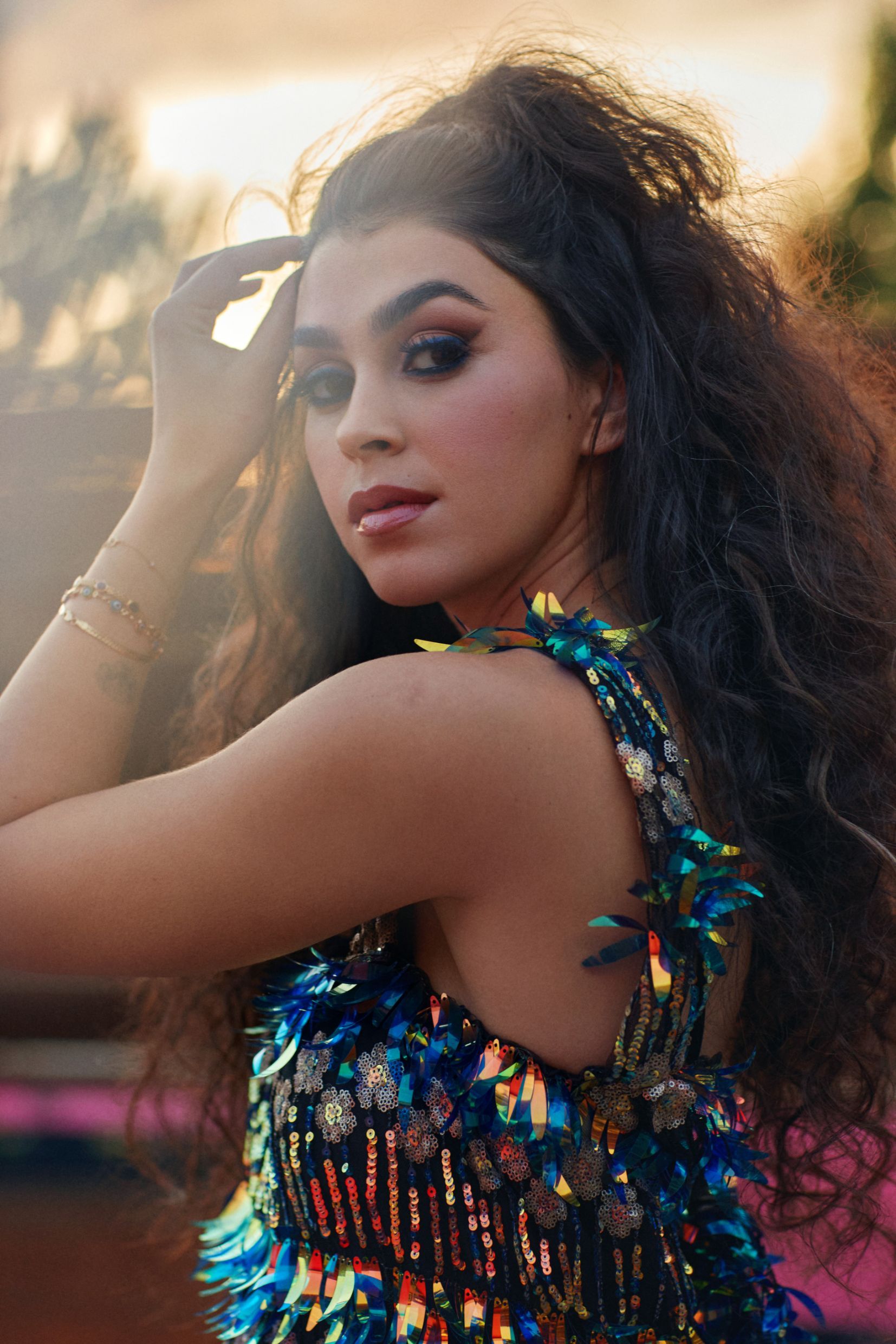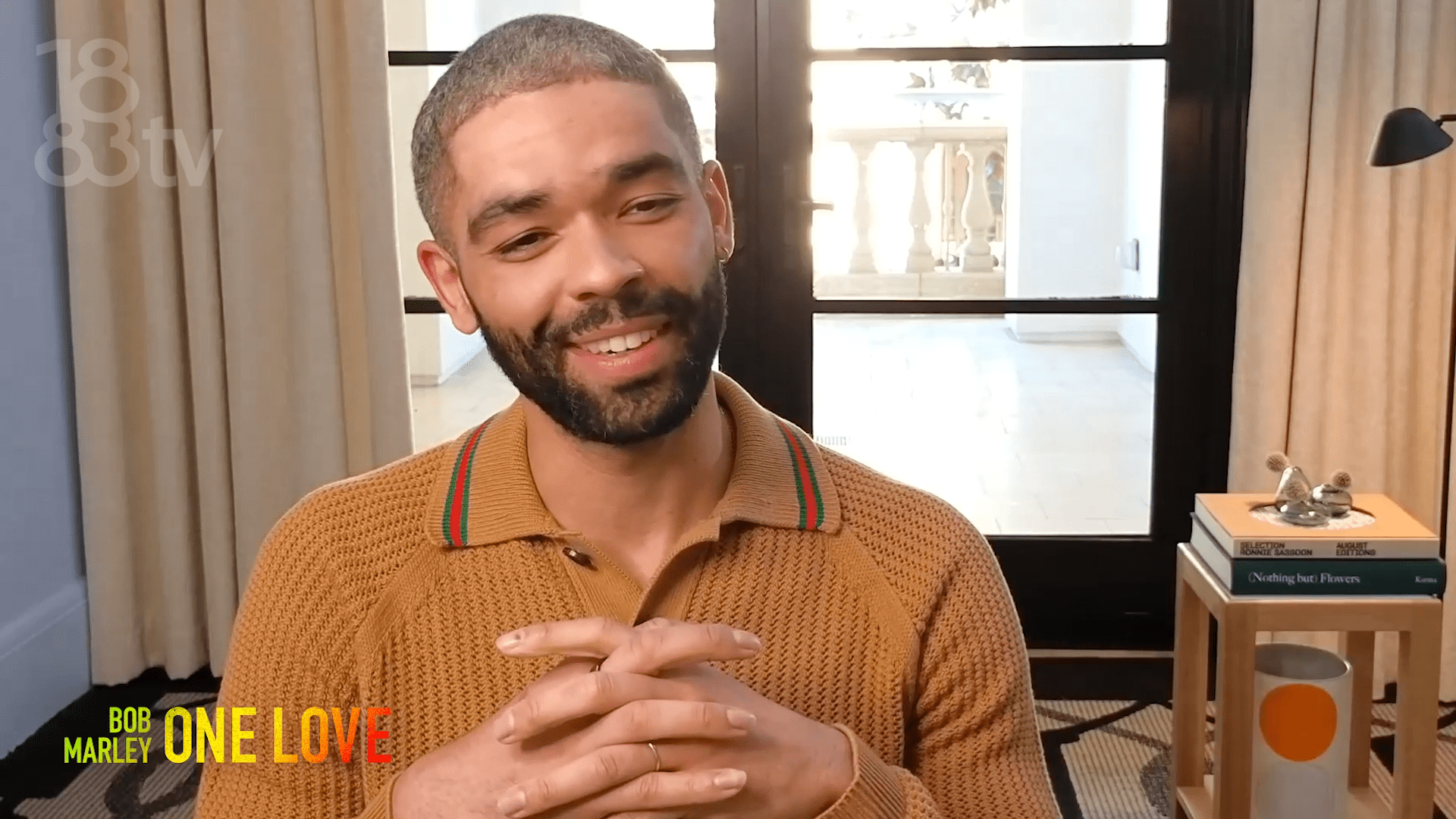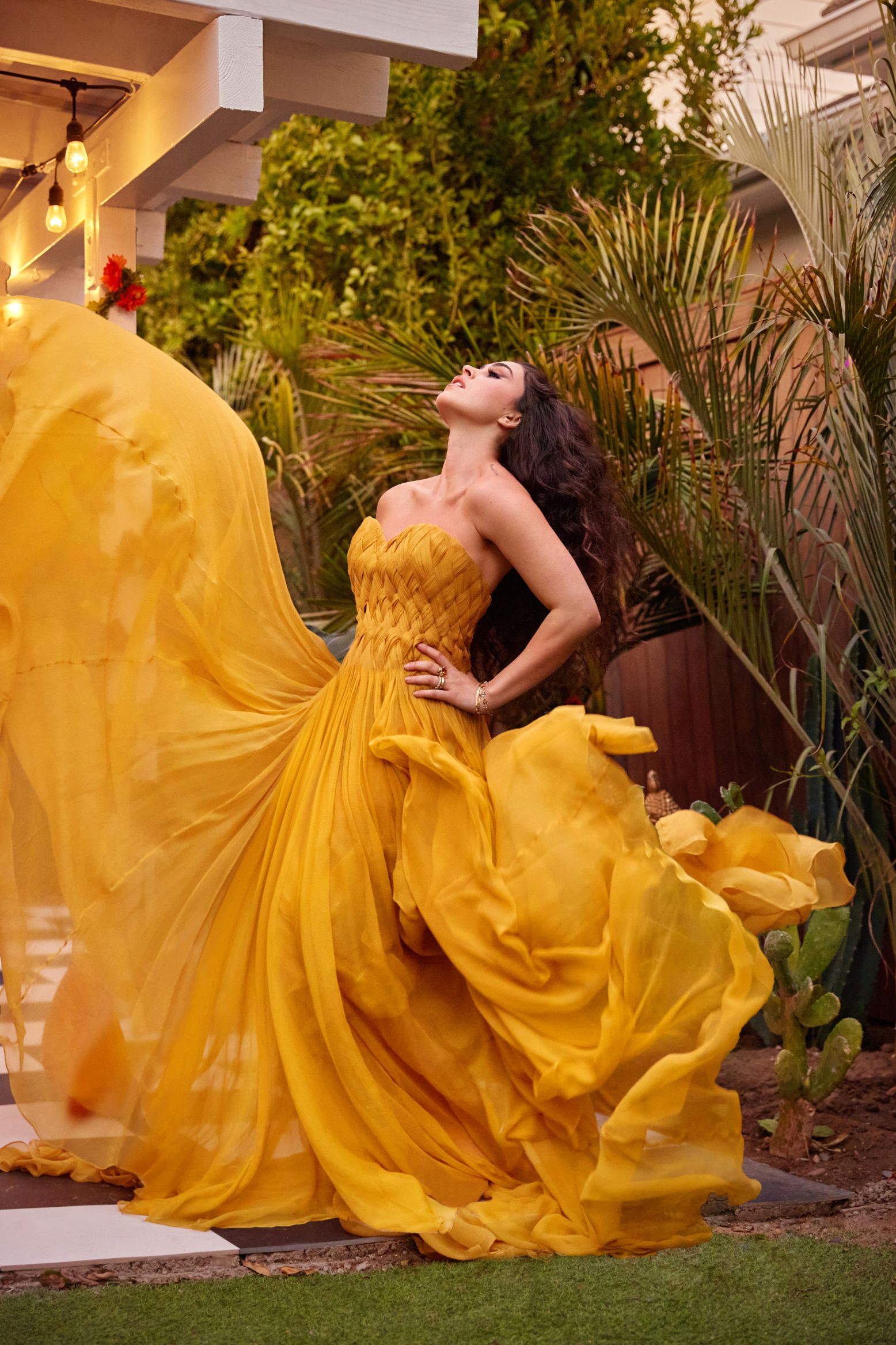
Natacha Karam
Speaking of the bias Hollywood once had towards the portrayal of women as nothing more than soft, gentle, maternal figures, Natacha Karam says, “I don’t want to go around reinforcing stereotypes of character traits that don’t feel authentic to me.” As such, the Northern Irish and French-Lebanese actress has made a name for herself playing strong, non-stereotypical female characters that challenge expectations and generalizations.
Natacha grew up in the Middle East and later Ireland, moving around a lot because of her dad’s work. Then, at 18, she moved to London to pursue a career in acting. She got her start in Hollywood in 2017, playing small roles in Homeland and Silent Witness, before starring as Special Forces Agent Jasmine “Jaz” Khan on the military action-drama series The Brave. She is best known, however, for playing 9-1-1: Lone Star’s Marjan Marwani, a badass firefighter, devout Muslim and social media influencer who was drafted to the fictional Firehouse 126 in season one by Captain Owen Strand (Rob Lowe) after he saw her heroics on Instagram.
As the show returns to Fox and Hulu for its fourth season, 1883 Magazine’s Bec Oakes sits down to chat with Natacha about what we can expect from upcoming episodes, being authentic online, the importance of representation and more.
- dress Charles & Ron earrings and ring ONCH
- dress Charles & Ron earrings and ring ONCH
9-1-1: Lone Star has recently returned for its fourth season. Without revealing too much, what can we expect from the new season?
You get to know a lot of the characters on a deeper level this season. With procedurals, it can take a while to build out people’s characters because they’re always busy doing the saving, the rescuing, the mission. That’s what the episodes are mainly centered on. So it takes a long time to start filling in the blanks around each individual and their lives outside of their jobs. The more episodes you have, the more you get to do that. There are a couple of episodes for my character that were so much fun. One of them was like a whole movie just about her. I know that fans of Marjan are going to be thrilled to have that kind of alone time with her outside the firehouse.
And how do you think Marjan has evolved between season one and now?
I think the focus was more on her strength and sort of bad-assery in the first couple of seasons. We’re now going more into her vulnerability and the softer side of things — friendships, relationships, fear… I’ll leave it at that because I don’t want to say too much. There are a lot of unexpected things that start happening this season.
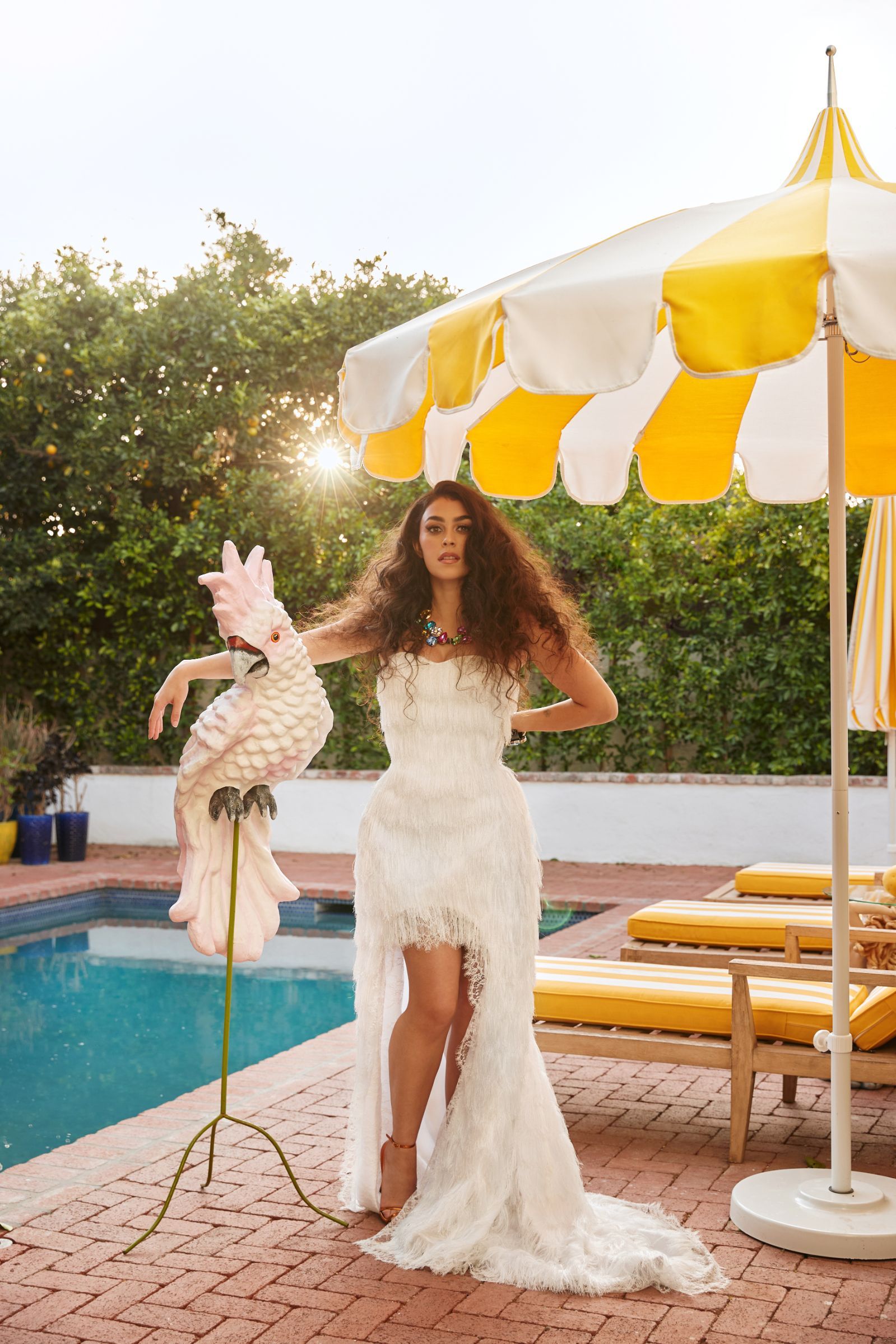
dress Izabela Couture heels Alevi necklace and cuff ONCH
As both this strong, independent woman working in a male-dominated field and a devout Muslim and hijabi, she certainly challenges a lot of stereotypes. What does it mean to you to bring this diverse, non-stereotypical representation to the screen?
It’s so hugely important for people to see themselves represented and to see their own potential. I think everything is in the details. We really start to see ourselves and feel connected to things when they’re detailed — detailed storytelling and characters with specific nuances we can relate to. We’ve spent a few years really fleshing Marjan out and deciding what her personal rulebook is so that she’s an individual.
Playing Marjan, I imagine there’s a lot of responsibility to portray the experience of hijabi women as accurately and sensitively as possible. How do both you and the show handle that pressure and the challenges that come with it?
There’s a group called the Muslim Public Affairs Council (MPAC), made up of multiple hijabi women, that are consultants on the show. What I’ve come to understand from talking to them is that every individual has their own relationship with God, their own parameters and boundaries. There are so many countries where women wear hijabs and the general cultures of each country are completely different. I know women who can wear figure-hugging clothing and I know women who don’t; women who show some of their hairline and women who show none. It’s all individual preferences. [With Marjan] it’s been all about creating an authentic character. Marjan is an individual and her story is not necessarily going to be the same as another hijabi woman. What’s important is remembering what we’ve established as her personal commitments and knowing that if we change anything in that, there has to be a reason.
- set Dyspnea necklace and rings ONCH heels Barollo Italy
- set Dyspnea necklace and rings ONCH heels Barollo Italy
And beyond Marjan, you have a history of playing strong, powerful women on screen. What draws you to these action-heavy roles?
I guess it’s important that after so many years of misrepresentation, or the sole representation of a certain kind of woman, to show that there are so many ways to be human. Women have predominantly been portrayed as soft and gentle and maternal. Of course, they can be all those things but women have so many different characteristics and personalities and jobs and physical capabilities. To have varied representations of women, to empower them and to expand the horizons of what some women even realize they’re capable of is really important to me.
Yeah, women are absolutely multifaceted beings but I guess they haven’t always been represented as such in film, on TV, etc.
There’s definitely been a bias towards what the palatable version of a woman is and that didn’t really feel like me. I don’t want to go around reinforcing stereotypes so if there’s a different story I can tell, I’m going to do that.
And with these action-heavy productions, how much of the stunt work do you do yourself?
I do as much as I can. I’d say most of the time when you see me do something on a show, it’s me. But there are definitely limits to what the stunt teams will let actors do and then there are things that don’t enhance my experience as an actor or a human. Then, I’m like “you know what, maybe I don’t need to do that thing over and over and run the risk of getting hurt when there are professionals who have trained and are paid to do this.” But that’s been a lesson I’ve learnt over the years. I used to want to do everything.
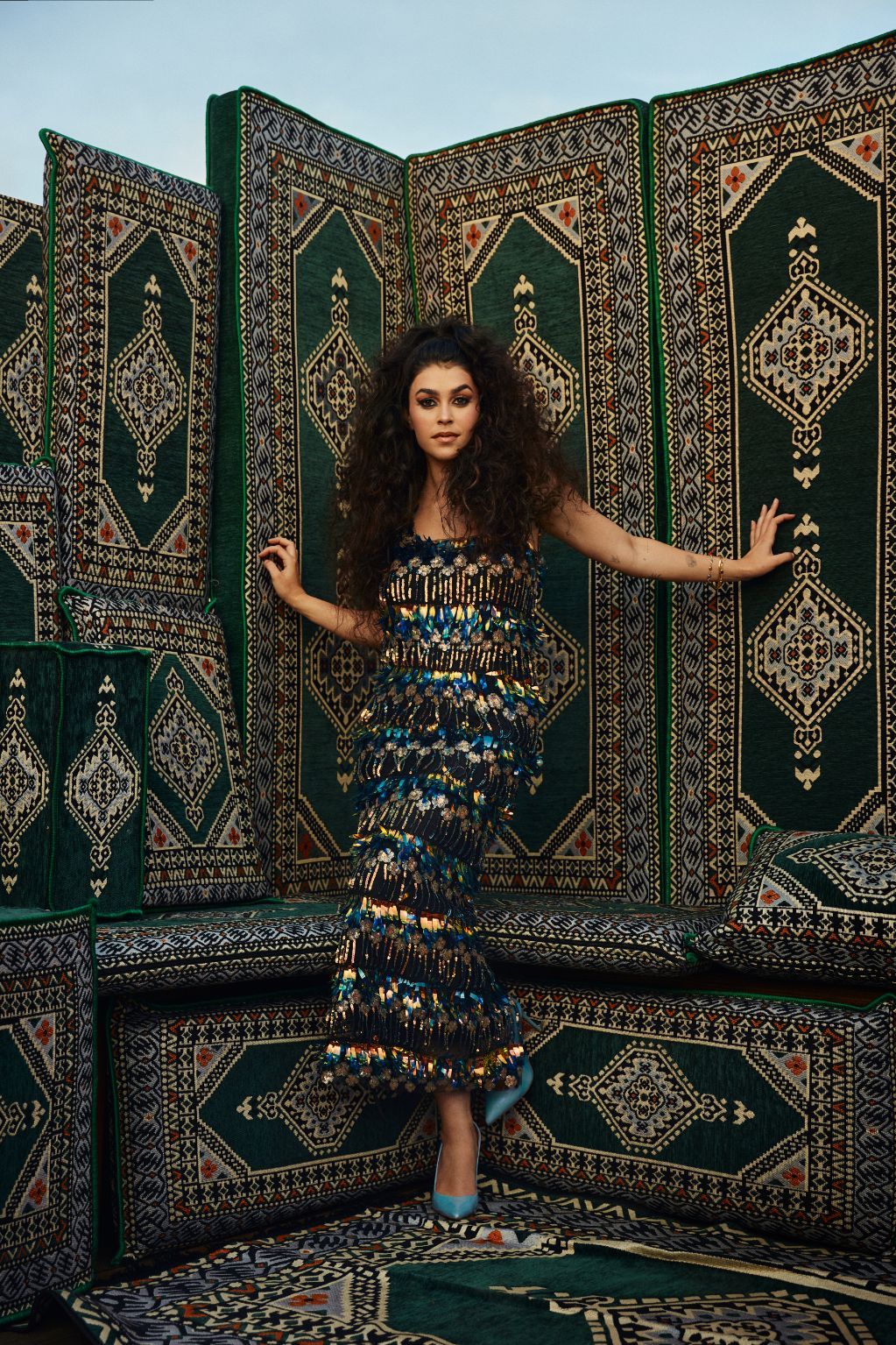
dress Mister Triple X
How do you prepare for the physicality of filming really action-heavy stunt sequences?
I think you’ve got to always stay somewhat fit so you don’t go a couple of episodes where you don’t have anything action-heavy and suddenly one pops up and you’re like, “oh God, I don’t have the breath capacity to do that” or “yeah, I can’t carry that oxygen tank.” It’s all about staying fit in a way that somewhat parallels the character that you’re playing.
Now, some of your storylines on 9-1-1: Lone Star touch on social media and Marjan’s position as an influencer, sometimes the negative impact of it. As somebody who is pretty active on social media, how do you maintain authenticity on a platform that quite often has a tendency to skew in the other direction?
Instagram’s interesting. There are times when the last thing I feel like doing is putting myself out there for so many people to access. But there are also times when I feel really fortunate that I have this place where I can share my voice and be heard or maybe inspire or encourage or affirm. I try to not make my social media too happy because I don’t think that’s necessarily reflective of life. There’s a duality in all things. Ups and downs. But I’m also aware that it’s the only space where I get to choose how I’m represented. As an actor, you don’t necessarily get to choose the shows you audition for or your character’s arc or how it gets edited. You don’t get so many opportunities to curate your own image. Social media’s a place where I get to choose how people see me. So I choose to be coloruful. I choose to be vulnerable. I choose to be human.
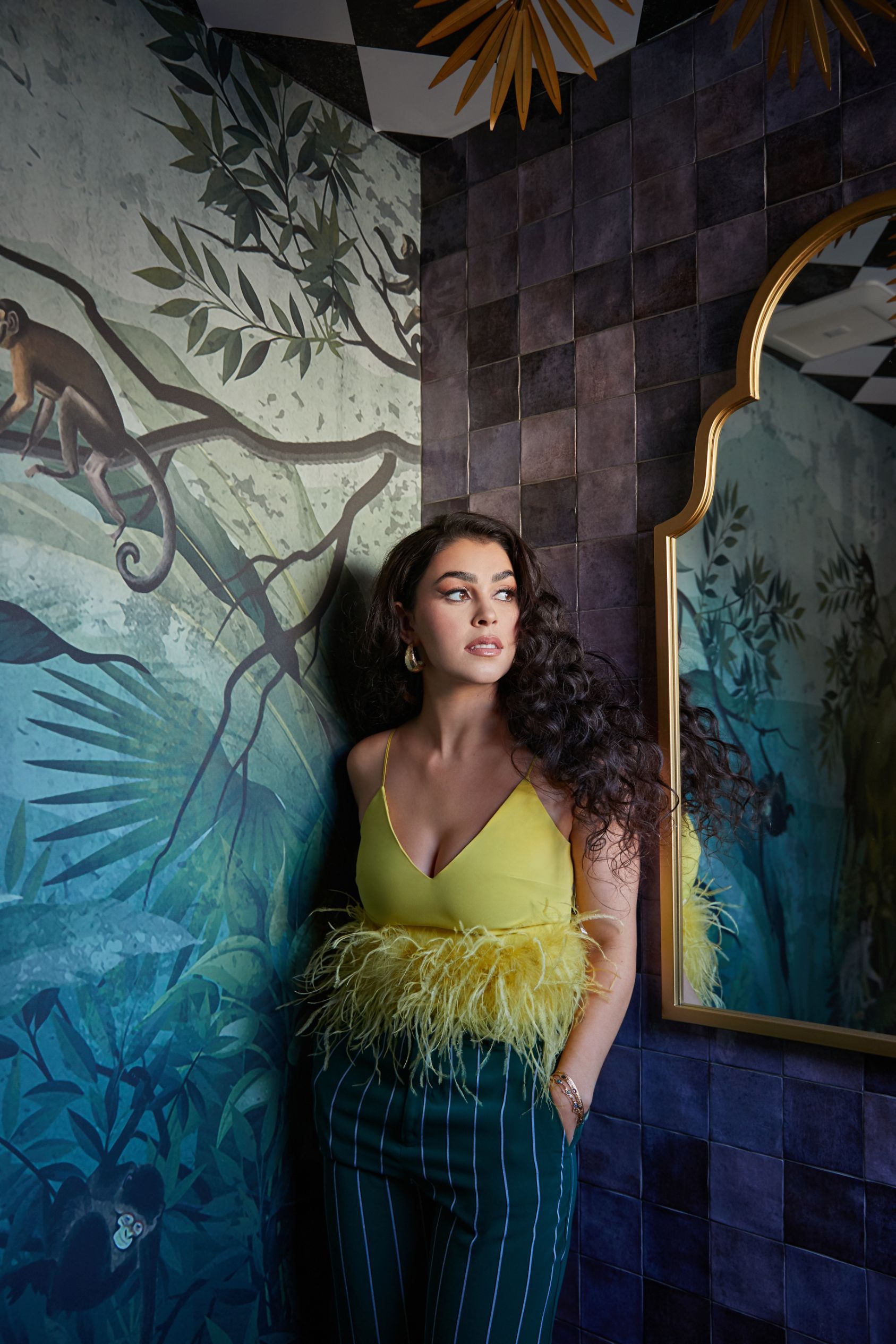
full outfit Natacha’s own
I loved watching your home renovation highlights on Instagram.
Renovating has been really fun. I moved around a lot growing up. I lived predominantly in the Middle East moving from country to country. Then I moved to Ireland and then to London. But anytime I had an apartment, I would always make it into a home and really decorate it within an inch of its life. Everyone was always like, “you know you’re only here for a year?” Now I’ve actually bought a house, it’s taken on a whole other level, knowing I can make permanent decisions and live in a space that really reflects me.
I guess the whole ‘making a house a home’ thing became much more important with the pandemic when we were all forced to spend so much more time confined to our houses.
Yeah. And I lived in an apartment at the time. I wasn’t in the worst situation but I definitely felt trapped. We had no outside space. They closed all the communal areas. You were scared to go out your door in case you bumped into anyone. Now I sit in this house that I’ve bought and changed and decorated and even though there are still things that need to be done, I think about how grateful I would’ve been to have had that space during the height of the pandemic lockdown. It takes little moments like that to be like, “okay, let’s live in gratitude.”
- dress Mister Triple X
- dress Mister Triple X
You also share a lot on Instagram about your passion for boxing. How did you get into that and what place does it hold in your life?
I have a really close friend from when I lived in London who is a black-belt martial artist. I just found her to be so incredibly inspiring as a human being in the way she harnessed so much power and strength. It’s so amazing to see someone who can be so soft but also so powerful. I think she just stands that little bit taller and her feet are more firmly rooted because she knows what she’s capable of. At a certain point, I decided, “I want to try that. I want a taste of that.” And trying it, I really learnt something new about myself. I learnt about discipline and how capable my body can be and what it is to feel powerful. When I was a kid, I was in a wheelchair and had problems with my legs so I’d never really had the experience of sports or feeling physically capable. With boxing, it became kind of addictive to know that it was possible to change myself for the better. I think that fully exists alongside internal work as well but the physical work was my entry point to that because I could so clearly see the change that was happening. It aligns my physical and my emotional strength. I feel like I have both of those things now. It shows me how capable I am.
And to wrap things up, do you have any dream projects you’d love to work on?
I say this every time I get asked in an interview because I’m going to manifest it into reality but I’m waiting for my boxing movie. A story that is full of the highs and lows of life — physical challenges, lots of vulnerability — the classic hero’s journey and a combination of the two things that I’ve probably dedicated the most time to in my life.
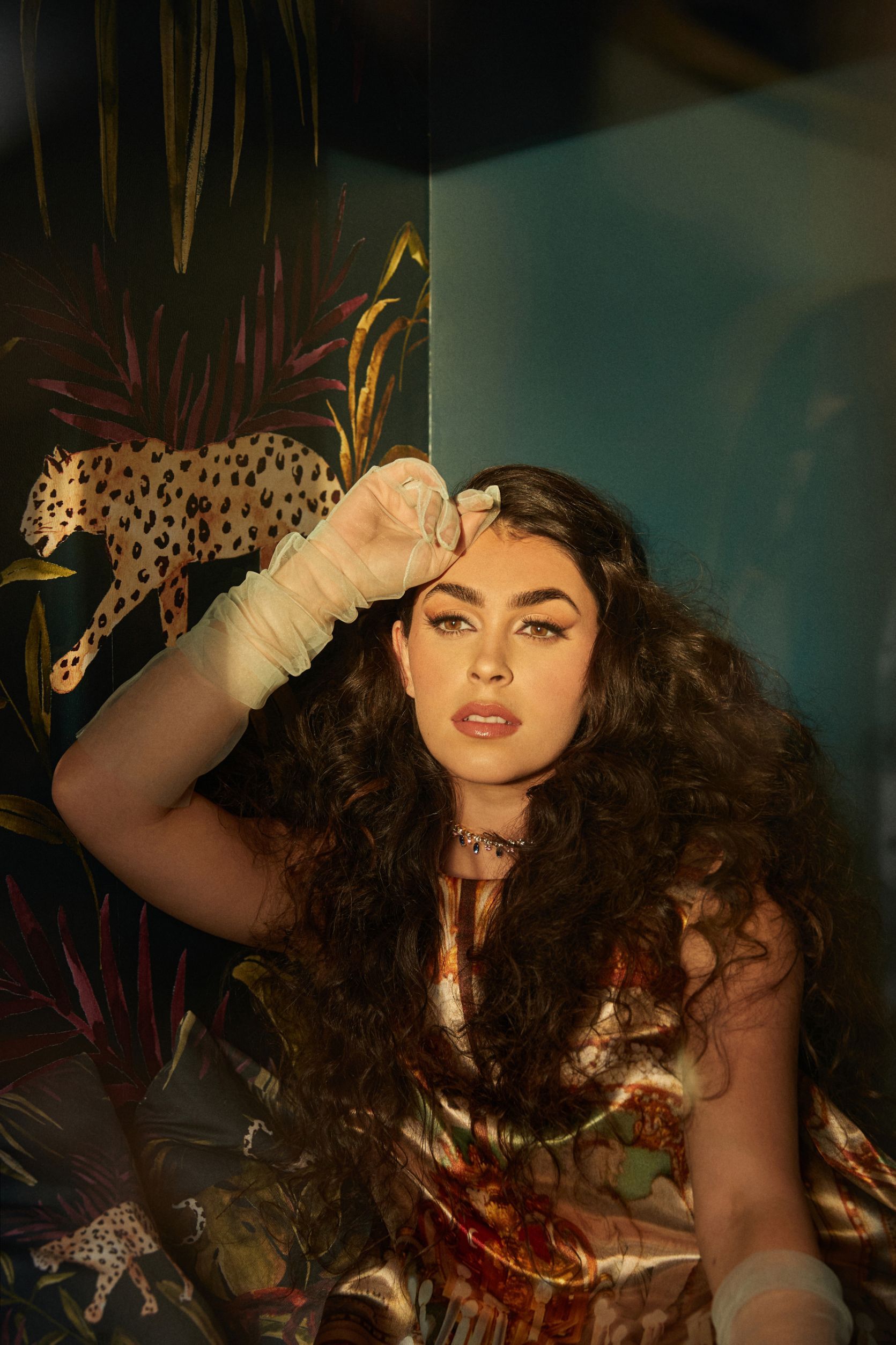
dress Charles & Ron necklace Almarow
Interview Bec Oakes
Talent Natacha Karam
Photography Emily Sandifer
Styling Andrew Philip Nguyen
Hair Matilde Campos at Six K Management using Oribe Hidden Crown and Color Wow Hair
Makeup Marcela Osegueda at Celestine Agency
Header image credit
dress Ong Oaj Pairam



